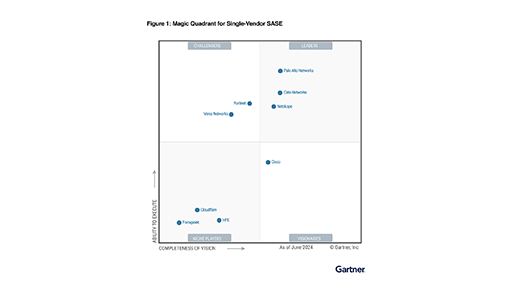As the pandemic wears on, and return to work plans continue to shift and morph, there’s really never been a better time to re-evaluate how your organization is handling remote access. Your hastily put-together VPN setup may have gotten the job done in the early days of lockdown, but is it really ready to protect a hybrid workforce that’s now used to flexibility and choice? Here are five signs that it might be time to reconsider your remote access VPN:
1. Your VPN has vulnerabilities, and you can’t keep up with patching in real-time.
Patching or upgrading the firmware of your VPN appliance is not easy. Not only do you need to conduct thorough testing before rolling out patches, but you also need to carefully schedule maintenance windows. Unfortunately, attackers are well aware of the resulting vulnerabilities and exposures. According to CISA’s list of vulnerabilities most frequently exploited by attackers in 2020 and 2021, many are related to remote access, with some dating back to 2018.
According to Dark Reading, attacks against well-known remote access VPN increased between 15 to 19 times from the beginning of the first quarter of 2021 as adversaries went after known vulnerabilities in the products, some dating back to 2018. Just a couple of weeks ago, a vendor disclosed that attackers had exploited an old vulnerability — for which patches have long since been available — to expose credentials for 87,000 VPN appliances. That’s just one example.
2. Your network is insufficiently segmented, if it’s segmented at all.
Improper segmentation means your users have access to more than they need to perform their job functions. You might say that you trust your users’ colleagues not to snoop around the internet network. But what happens if their laptop is compromised?
Even if your VPN is patched, it is still a public-facing service and not immune to attacks. This can lead to several potential outcomes, none of them good. For example:
- What if your end-users fall prey to a phishing attack and the VPN connectivity will lead the attackers straight into your network? Worse, if your network is flat, attackers are free to roam and discover valuable assets.
- With your remote access VPN already overburdened, a relatively minor DDos Attack could bring down the VPN gateway, causing business shut down for remote users.
3. The majority of your end-user helpdesk tickets from end users are “I can’t connect,” or similar complaints.
These complaints are likely due to the fact that you are backhauling traffic or hairpinning the traffic, only to send it to public cloud environments. Your organization probably uses a network transit hub to interconnect on-premises networks and your virtual private clouds (VPN) or virtual cloud network. This can be quite efficient when all of your users are on site. However, with remote work, this means significant slowdowns as the network connectivity degrades because your users’ VPN traffic has to travel through the public internet to get to the on-premises network first.
4. Your VPN has hit bandwidth limitation, even after split tunneling.
Under normal circumstances, it is hard enough to properly size the hardware appliances, with many variables and assumptions such as what features are used, network conditions and traffic patterns etc. Backhauling all remote user traffic to the data center only to send it out to the web and SaaS, is costly, complex, and inefficient, especially with remote work at scale. It is perfectly alright to tunnel your web and SaaS traffic especially when augmented by a cloud-based secure web gateway (SWG) and CASB. But why stop there?
With all the unpredictability of remote work, your VPN concentrator can still run out of juice because the majority of your employees are remote and are using it to gain access to private applications, some of which are hosted in public cloud environments. Many organizations facing license renewal, true-up, add-ons, or hardware upgrades, have used this opportunity to switch from the CapEx model to OpEx to stay agile in this uncertain time.
5. You are provisioning a lot of remote access VPN to individuals who are external to your company — contractors, consultants, vendors, etc.
They use devices owned by their employers, reducing your visibility and control, and might be violating policy by installing the agent for your VPN. Combined with the item above about split tunneling and overspent bandwidth, and it’s easy to see why you have heartburn over this.
Many teams would rather reserve remote access VPN as the tool for the power users in the networking team, who need full “network” access. This is a good reason for retaining some kind of VPN — fully patched, of course. But for the general case of granting remote access to internal applications, ZTNA is often the better choice.
If you experience one or more of these signs, your VPN may be running out of gas. Before your VPN tank is empty, consider other alternatives to your remote access VPN. As a result, many IT organizations are embracing cloud-delivered ZTNA as a modern, secure, and more efficient alternative to VPN, especially to address the pains mentioned above.
If you’d like to learn more, check out this practical guide for ZTNA that will give you some ideas for quick wins.




 Back
Back 
















 Read the blog
Read the blog